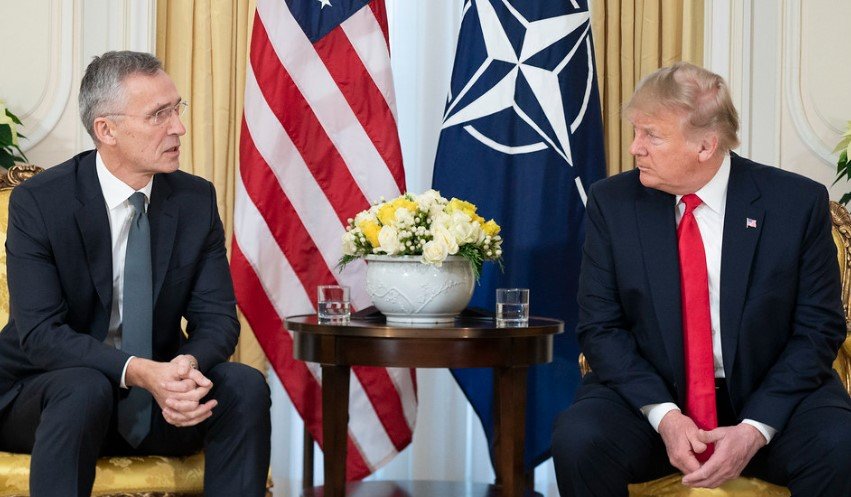America is no longer retreating from global leadership. It’s sprinting in the opposite direction. Just 100 days into his second term, Donald Trump is dismantling decades of foreign policy architecture—and allies are watching in disbelief.
President Trump’s shift from rhetorical shock to administrative action is no longer a matter of concern. It’s now a geopolitical fact. The cuts are deep, the pullbacks abrupt, and the message is loud: the U.S. isn’t interested in playing world policeman—or even reliable partner—anymore.
Bureaucracy Burned: State Department Gutted, Diplomacy Dismantled
A slow bleed has turned into a hemorrhage. In his first term, Trump often ignored the diplomatic apparatus. In his second, he’s actively dismantling it.
Offices inside the State Department are being shuttered. Positions once filled with seasoned diplomats now sit empty or are staffed with ideologues. Morale is dismal. Budgets are slashed beyond recognition.
One senior foreign service officer who resigned last month said bluntly: “This isn’t neglect. It’s sabotage.” Career diplomats who survived the turbulence of Trump’s first term now describe the second as “unlivable.”
Just last week, the Bureau of African Affairs lost three regional directors. Two left voluntarily. One was fired without notice. No replacements have been announced.
The fallout?
-
Embassies in over a dozen countries now operate without confirmed ambassadors.
-
Regional desks are overwhelmed, understaffed, and ignored by the West Wing.
-
High-level meetings that once built trust are being cancelled or never scheduled.
And the silence is telling. It’s not just that America isn’t showing up. It’s that nobody in Washington seems to care that it’s missing.

NATO: Snubbed, Mocked, and Possibly Doomed
At a private donor event in Mar-a-Lago, Trump allegedly joked that if Russia attacked a NATO country he didn’t like, he’d “let Putin have it.” That got laughs in the room. It sent chills through Europe.
This isn’t theoretical anymore. Trump’s administration has already delayed military aid to Baltic states. Joint training exercises with NATO partners have been scaled down or postponed indefinitely.
Officials in Brussels are scrambling to understand where America stands. Spoiler alert: it doesn’t.
Article 5, NATO’s bedrock—“an attack on one is an attack on all”—is being treated like a punchline, not a promise. Defense ministers across Europe are quietly drawing contingency plans that don’t involve U.S. reinforcements.
And for countries like Poland, Estonia, and Finland, that’s more than an existential dilemma. It’s a waking nightmare.
Trump’s United Nations Withdrawal Is Happening—Just Not All at Once
Technically, the U.S. is still a member of the United Nations. Functionally? Not so much.
Trump’s UN ambassador hasn’t shown up for multiple Security Council meetings this month. The administration has frozen funding to several UN programs, including those on climate, refugee support, and food aid.
In March, Trump pulled the U.S. out of a major multilateral health initiative. Then came the formal withdrawal from the UN Human Rights Council—again.
Some Republican senators privately admit the moves are reckless. Publicly? They’re quiet, wary of backlash from Trump’s base. One aide said, “There’s no political upside to pushing back. Not in this party. Not anymore.”
Allies Rattled, Rivals Rejoicing
From Berlin to Seoul, the new Trump era has triggered a diplomatic earthquake. World leaders aren’t just confused—they’re recalibrating entire foreign policies.
Angela Merkel’s successor, Olaf Merz, made waves by suggesting Germany could no longer “assume American defense guarantees.” In Tokyo, a senior defense official confirmed Japan is considering revising its pacifist constitution to allow greater military autonomy—specifically because U.S. protection is no longer “assured.”
Meanwhile, Beijing and Moscow are celebrating. China has pushed forward in the South China Sea with minimal American pushback. Russia is ramping up disinformation campaigns in Eastern Europe, emboldened by Washington’s retreat.
One Russian state TV host even said, “Trump is doing our job for us. The empire is collapsing from the inside.”
The Numbers Behind the Retreat
Let’s not get lost in opinion. The data paints a stark picture of America’s declining global footprint.
| Measure | Pre-Trump (2016) | Now (2025) |
|---|---|---|
| Full-time U.S. diplomats | 13,980 | 9,400 |
| Foreign aid budget | $39.2 billion | $18.7 billion |
| NATO troop deployments (Europe) | 65,000 | 38,500 |
| U.N. contributions (voluntary) | $1.5 billion | $350 million |
| Active foreign policy initiatives | 94 | 43 |
These aren’t just numbers. They’re signals to the world that America is pulling the plug—fast.
A More Chaotic and Dystopian World?
So what’s next? Nobody really knows. But uncertainty is the new currency of diplomacy—and Trump’s White House is minting it by the truckload.
Foreign policy experts warn of a coming “vacuum era,” where regional conflicts spiral because global powers are paralyzed. Think Taiwan. Think Middle East. Think Africa’s coups and insurgencies.
One former CIA analyst described the emerging order like this: “Less like Cold War 2.0. More like Mad Max with nukes.”
Of course, some of this could still be reversed. But will it? Not if the current signals hold.
As one European ambassador told Bloomberg anonymously: “America isn’t leading. It’s not even following. It’s just ghosting the world.”
